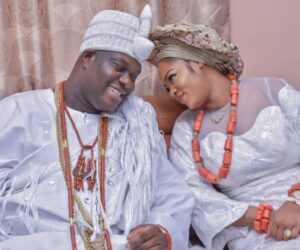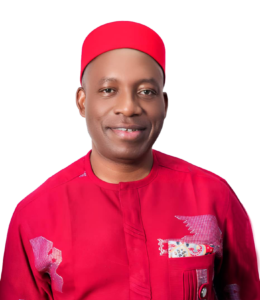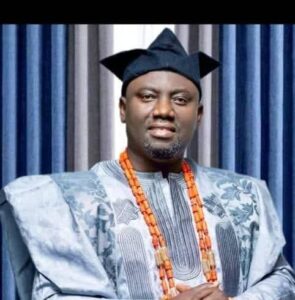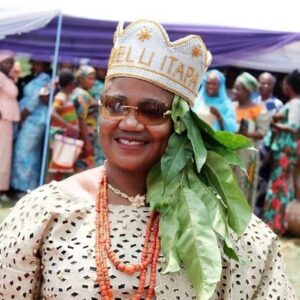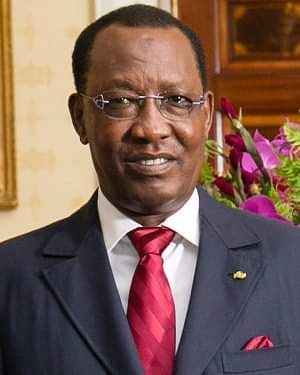
AN event scantily reported but of great significance occurred this past week. In a multi-national trans-border military operation which makes nonsense of territorial integrity and the whole paradigm of post-colonial nationhood, Idriss Deby, the Chadian strongman, swept into Nigerian territory to give the Boko Haram insurgents a staggering body blow.
It was a grim replay of the events of thirty eight years earlier when the then Major General Muhammadu Buhari as the GOC of the Third Division, against the presidential directive of his Commander in Chief, Alhaji Shehu Shagari, also struck deep into Chadian territory to pursue some ragtag militiamen fomenting trouble around the Lake Chad precincts.
At that point in time, Nigeria could boast of an army with three well-provisioned and well-armed divisions making up arguably the sleekest fighting machine in the whole of West Africa.
On the other hand, Chad could boast of four thousand five hundred soldiers up from the four hundred and fifty men comprising solely of demobilized veterans of French military campaigns in Vietnam and Indo-China that made up the Chadian army upon independence from France in August, 1960.
But the table has since turned and by the time Idriss Deby was done last week, scores of Boko Haram fighters and their commanders lay dead and dying in scorching sand. Shekau, their monstrous and bloodthirsty leader, was literally gasping for breath while begging Idriss Deby for a respite. But the Chadian strongman was having none of that nonsense from the berserk brute.
In a terse broadcast, Deby ordered Shekau and his demoralised troops to surrender or be summarily eliminated. In all this, the main regret of the warlord was that Nigerian soldiers were nowhere to be found to hold on to their territory recovered so that he can continue his march deep into Nigerian territory to flush out the insurgents.
Deeply humbled as a fighting force, the Nigerian military command could only make some feeble noise about fighting on in some adjacent territory even as the territorial integrity of the nation lay in tatters.
But by the end of the week, the noise of gun battle had receded. All was quiet again on the Ubangi-Chari front. Around Wednesday, a triumphant Chadian military convoy clattered through the rusty streets of the capital. There was no further word on Boko Haram and Shekau. Yet in a bizarre redefinition of post-reality, the Chadian embassy in Lagos was by the weekend insisting that nothing like this ever took place even as footages from the confrontation was being shown by credible international media outlets.
If anybody had thought that the slippery and coldly calculating Deby was interested in saving Nigeria from military humiliation or political disintegration, such a person is a neophyte. With his military machine poised to punitive exertion by decades of relentless fighting, Deby could have gone all the way to Abuja if he had minded. But that is not part of his calculations.
A master-warrior with the purest fighting instincts, Deby is not to be dared or lightly crossed. He had shown such brilliant brinkmanship before when he sent his Darfur military proxies all the way to the gates of Khartoum in retaliation for Omar el-Bashir’s support for a rival militia gang that almost overthrew him.
Much earlier in 1987, in a lightning military operation reminiscent of the German blitzkrieg, he had sent his mounted pick-up vehicles all the way to the remote Aouzou strip to put Ghaddafi’s military nose out of joints as Libyan troops beat a disorderly retreat all the way back to Tripoli.
Idris Deby’s only military credentials are his commercial pilot’s certificate and some rudimentary training. But he had shown enough fighting pluck and brilliance on the battle field to be named as Chief of Staff by Hissene Habre, the former Chadian ruler and bloodthirsty warlord. As this column once noted, in asymmetrical warfare the untutored generalissimo is the master of the trained general.
For a man who only ten years ago was dismissed by the influential and authoritative Foreign Policy magazine as a “ lonely tyrant” with a few days left in office before being thrown into the trashcan of history, Idriss Deby’s staying power and brutal capacity for survival is the stuff of magical fiction.
With thirty years in power and still counting, Deby, now self-renamed Idriss Deby Itno, has lived by his will and wits surviving scores of coup attempts and assassination bids to become the preeminent warlord of the old French Equatorial territory stretching from Aouzou Strip in the far north and Southernmost tip of Libya to Congo Brazzaville in the deep south.
On that particular occasion when he had his back to the wall, Deby managed to survive through a combination of bluff, daring and sheer daredevilry. Holed up in his marble presidential palace in the heart of the capital city with gunshots crackling outside from rebels who had fought their way to the city centre, the Chadian ruler refused the offer of evacuation even from his French military advisors which would have spelt his end.
It was only after that face-off that the French, having realised that the man from the Bideyat clan of the Zaghawa people is not for easy turning, began to plot how to neutralize the armed hordes at the gate.
The fractious nature of his enemies was also of immense advantages. With sure victory starring them in the face, the ragtag opposition coalition could not agree on who to lead or what to announce to their fellow compatriots. From there the initiative fizzled out and the rebellion collapsed.
In a cruel and fundamental sense, the dilemma of the Chadian military rebels and their inability to come together as a unified front is also the dilemma of this arid country that straddles the Equatorial belt and the Sahara Desert. France regarded its central African possession as a useless stretch of barren territory and left the war-like tribes and clans to fend for themselves.
So bad was the situation that at independence Chad had no paved road or modern facilities to talk about. As if to emphasize the benumbing poverty, the Independence Day speech had to be read in parts with torchlight by Andre Malraux, General Charles de Gaulle’s representative and world famous novelist.
What the French did was to carve out the Sari-dominated and fertile southern tip of the country for cotton-farming and designate it “the useful Chad” while letting the arid bulk get on with it. It was a recipe for permanent chaos.
In the event, it was no surprise that the first president and founding father, Francois Tombalbaye, a Sari supremacist, took to heavy drinking and a savage repression of his people. Cruelty and savagery seem to unite most of Chad’s post-independence leaders.
Apart from consolidating a Sari hegemony in the military, the civil service and other arms of government, Tombalbaye’s other claim to fame was a dubious policy of authenticity most probably freighted over from Mobutu’s Zaire and which saw the former school teacher changing his first name to Ngartha.
By the time the rogue tyrant was killed in 1975 by officers from his own Sari ethnic group, Chad was gradually transforming into a vast garrison of armed men and arms bearers. It was—and still is—a war of all against all. In the absence of a viable national economy and within the context of excruciating poverty arms-bearing becomes the only respectable profession.
Unfortunately in the absence of a viable civil and political society, the democratization of arms and the weaponization of politics lead to a full militarization of the society. Have gun and fully armed militiamen and you will travel far. FROLINAT had to rely for its take-off on arms abandoned by General Ernst Rommel and his Panzer Corps in 1943.
This was the case in Chad by 1979 as the Goukoni Weddeye –led FROLINAT fought its way to the gates of the presidential mansion in Ndjamena in a determined bid to overwhelm General Felix Malloum, Tombalbaye’s military successor.
As it ever happens in a country beset by protracted war along ethnic lines, the national army had been de-nationalized and had become just one regional force among so many contending regional forces.
In a deal brokered by Nigeria, Malloum was exiled to Kano and replaced by a broad-based coalition headed by Weddeye with Hissene Habre as his Defence minister.
In a repeat of what has happened in Nigeria, Togo, Benin, Sierra Leone, Liberia, Cote D’Ivoire and Zaire, the underdeveloped but more militarily determined north has stream-rolled and overwhelmed the more developed but less cohesive south.
Yet despite this, the infighting and factional clashes continue in Chad. The ruling coalition at the centre disintegrated and Hissene Habre and his faction took up arms against their former leader.
In 1982, Habre and his men fought their way through the streets of Ndjamena to overwhelm the forces of Weddeye who promptly fled. It was the first time in the history of Africa, outside of the anti-colonial struggle, that a civilian militia will be overpowering a government backed by a regular army.
Hissene Habre, aka the devil of Samangudu, is probably the most vicious and brutal ruler of Chad. In a turbulent eight-year reign marked by savage repression and widespread violation of human rights, the tyrant jailed and killed at will depending on his volatile mood.
In one instance of state infamy which will be remembered for its grotesque barbarity, the vindictive sadist was known to have had his opponent pushed in the direction of the rotating propeller of a chopper and to instant decapitation.
After a few years of violent protests and equally violent suppression even Habre’s original French sponsors were exhausted by the murderous antics of the man they thought was going to be a model of Gaullist rectitude and sobriety.
Opposition to Habre peaked with the desertion of three of his lieutenants in an open declaration of rebellion. Of the three that made a dash for Darfur, only Idriss Deby, survived. The other two were brutally hacked down.
But Habre’s time was up. In early December, 1990, Idriss Deby began his characteristic blitzkrieg towards Ndjamena from Darfur. Within a few days, he had arrived at the Presidential Gates, and Habre was history. Thirty years after, Deby is still ensconced in the state house. But the more things change, the more they remain the same.
The Chadians have merely exchanged an alligator for a crocodile. In a replay of history reminiscent of the times of the founding father, Deby’s Zaghawa people have since replaced the Saris as the top dogs and hegemonic group while the repressive ferocity reminds one of the times of Francois Ngartha Tombalbaye. It is the ultimate logic of ethnically divided societies ruled by arms and warlordism.
The beauty of contemporary Nigeria lies in its negative equilibrium and a micro-pluralism of power which does not allow any side to lord it over the nation for long. This is as a result of what philosophers will call overdetermination of contending forces, a situation in which no power group is dominant enough to determine proceedings for any length of time. Those who tried to tip the scale in the past have had their fingers burnt as they will in the future.
So, those members of the Nigerian intelligentsia and aficionados of chat groups hailing Deby’s triumphant forces as they rumbled through the dusty streets of Ndjamena after routing Shekau and his renegade group must begin to appreciate why Nigeria’s problem and failure are of a different order. Happy Easter to all our readers.







